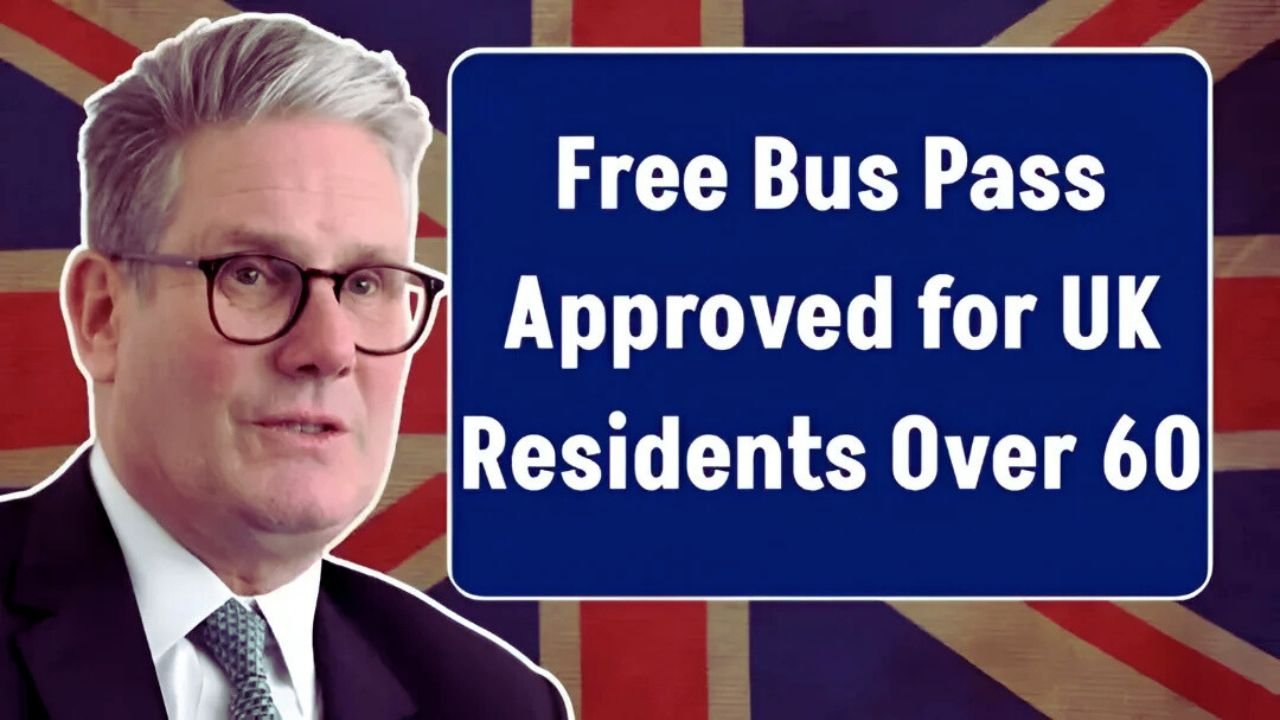Free Bus Pass Approved for UK Residents Over 60 : In a move that’s bringing smiles to many older folks across the country, free bus passes are helping people over 60 get around without spending a penny on fares. This scheme has been around for years, but with calls for it to spread even wider, it’s worth knowing if you qualify and how to get one. Whether you’re in England, Scotland, Wales or Northern Ireland, the rules differ a bit, but the idea is the same: to make travel easier and cheaper for seniors. This article breaks it down in simple terms, so you can see what’s on offer and how to grab it.
Understanding the Free Bus Pass Scheme
The free bus pass, often called a concessionary travel card, lets eligible people ride buses for free during off-peak times. In most places, that means from 9.30am on weekdays and all day at weekends and bank holidays. It’s run by local councils or governments in each part of the UK, and it’s designed to help older people stay connected with family, shops and doctors. While it’s not brand new, recent talks in Parliament have spotlighted it, with some pushing for more people to benefit. For now, it’s a lifeline for millions, saving them money and encouraging them to get out more.
Who Qualifies Across the UK
Eligibility depends on where you live, as each nation has its own rules. In Scotland, anyone aged 60 or over can get free bus travel nationwide. Wales offers the same for those 60 plus, with free rides on local buses. Northern Ireland follows suit for residents over 60. But in England, it’s tied to the state pension age, which is currently 66 for both men and women, though some areas like London have extras for those over 60. If you’re disabled, you might qualify earlier no matter where you are. Here’s a quick look at the basics:
| Nation | Minimum Age | Key Notes |
|---|---|---|
| England | 66 | Local bus travel, off-peak |
| Scotland | 60 | Nationwide, includes ferries sometimes |
| Wales | 60 | Local and some longer trips |
| Northern Ireland | 60 | Includes trains in some cases |
Always check with your local authority, as things like residency matter too. You need to live in the UK and prove your age with a birth certificate or passport.
How to Apply Step by Step
Getting your pass is straightforward and usually free. First, gather your proof of age and address, like a utility bill or driving licence. Then, visit your local council’s website or pop into a post office if they handle it. In Scotland, apply online via mygov.scot or at a council office. For England, use gov.uk to find your area’s form. Fill it in, attach a photo if needed, and send it off. It takes a few weeks to arrive, but once you have it, just show it to the driver. If you lose it, replacements are easy to sort. Applications are open year-round, so no need to wait for your birthday.
The Perks of Having a Bus Pass
Beyond saving cash, the pass opens up a world of freedom. Many users say it helps them visit grandkids more often or join community groups without worrying about costs. In some spots, it even covers trams or local trains. With fuel prices high, it’s a green way to travel too. Plus, it boosts health by getting people walking to bus stops. Stories from pass holders show how it fights loneliness, letting them chat with others on the journey. If you’re over the age limit, it’s worth applying even if you don’t use buses much now, as you might later.
Looking Ahead: Calls for Change
There’s buzz about making the scheme fairer, especially in England where the age is higher. A petition earlier this year got over 100,000 signatures asking to lower it to 60 everywhere, like in other parts of the UK. The government has said it’s sticking with the current rules for now, but they’re listening to feedback. With the state pension age rising slowly, keep an eye on updates from Age UK or your MP. If changes happen, millions more could benefit. For the moment, if you’re eligible, don’t miss out on this handy perk. It’s a simple way to make life a bit easier in your later years.
